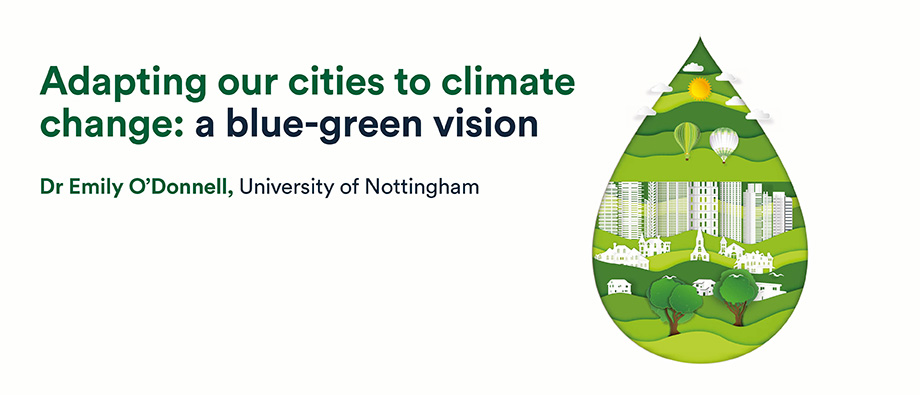
Hosted by the Nottingham branch of the Geographical Association – School of Education and School of Geography
Presented by Dr Emily O’Donnell, Assistant Professor in Climate Change, Science and the Environment, University of Nottingham.
Cities around the world face the challenge of adapting to the impacts of climate change, including more frequent and intense rainfall events, droughts, and heatwaves. At the same time, increasing urbanisation, reduction of urban greenspace and ageing infrastructure amplifies flood risk and puts pressure on urban water cycle management.
Blue-Green infrastructure (BGI), including green roofs, swales, rain gardens, urban wetlands, and reconnected floodplains, is recognised internationally as an approach for managing urban climate challenges and helping cities become more resilient in the face of future climate uncertainty.
BGI incorporates landscape elements across spatial scales, from individual assets to restored river corridors, and provides a range of socio-cultural and environmental benefits that can help tackle the biodiversity crisis and improve quality of life. Multifunctional infrastructure is key to delivering these benefits, yet this is increasingly challenging to implement due to socio-political (e.g. governance, funding, public perceptions) and biophysical factors (e.g. trade-offs between the benefits of BGI).
In this lecture, Dr Emily O’Donnell will explore how barriers to BGI may be overcome to enable blue-green visions for cities to be realised. Key to this is framing climate change adaptation as an opportunity to improve liveability and wellbeing in cities and learning from international best practice.
School teachers are encouraged to bring A level students.
Refreshments will be available from 4.30pm.
When registering for this event, we will collect personal data from you. This information will not be passed outside of the University of Nottingham. Please read our privacy information for more detail about how we use data.